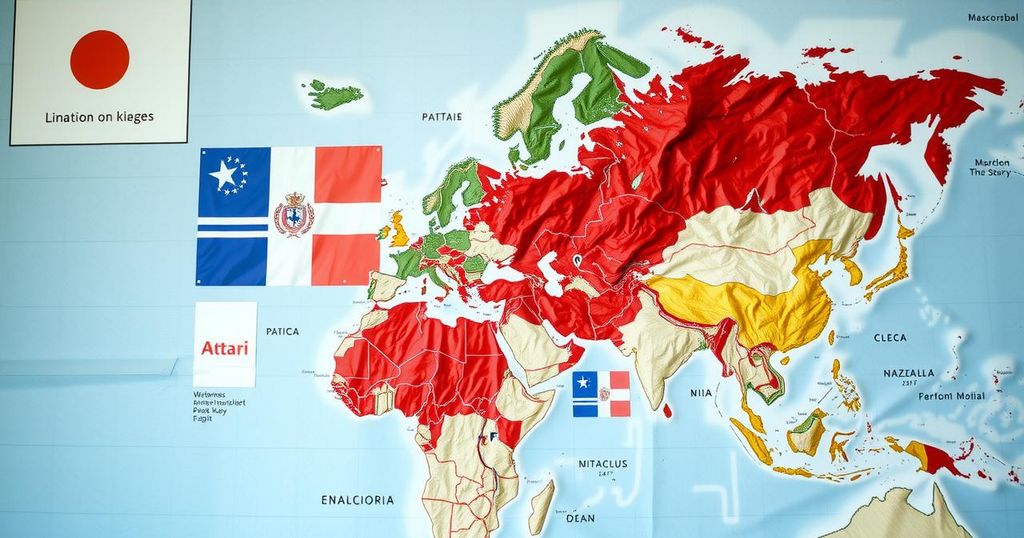Outrage Erupts Over Israel’s New Territorial Map Claims

Israel’s new map, claiming historical rights over Palestine and parts of neighboring countries, has led to widespread protests from Arab nations, including Jordan, Qatar, and the UAE, who argue it violates sovereignty. The map suggests expansionist intentions, prompting calls for international action to halt such ambitions and support Palestinian statehood.
A significant controversy has arisen following the release of a map by the Israeli Ministry of Foreign Affairs, which asserts Israel’s claim to historical claims over Palestine, Jordan, Lebanon, and Syria. This map was circulated on Arabic-language social media accounts and depicts Israel as historically established, referencing biblical narratives. In reaction, several Arab nations condemned the map as a violation of their sovereignty, labeling it an extension of Israel’s territorial ambitions. The contentious post suggested a revival of historical claims, invoking Israeli monarchy periods, and citing the establishment of Israel as a democratic state in 1948.
In response to the map, Arab nations—including Jordan, Qatar, and the UAE—voiced their outrage, emphasizing that the map constitutes a bold infringement on Palestinian territories. Jordan’s Ministry of Foreign Affairs characterized the depiction as an effort by Israel’s right-wing factions to undermine the prospects for a Palestinian state. Simultaneously, Qatar condemned the map as a blatant violation of international norms, expressing concern over the implications for regional peace. Similarly, the UAE contended that the map represents a deliberate extension of occupation and violates international law. These nations have called upon the international community to address these expansionist inclinations and uphold the principles of sovereignty.
The publication of the map by the Israeli Ministry of Foreign Affairs represents a deep-seated historical and political debate over territorial claims in the region. Israel has often cited historical ties to the land to bolster its legitimacy, while Palestinian claims to land and statehood are deeply intertwined with national identity. The backlash from Arab countries underscores the sensitivity surrounding territorial disputes in the Middle East, particularly amid ongoing tensions in Israeli-Palestinian relations and broader Arab-Israeli relations.
The release of Israel’s new map has sparked widespread condemnation from various Arab states, reflecting the deep-seated tensions and complicated history in the region. These nations have united in their critique of the map, viewing it as a direct threat to regional stability and Palestinian sovereignty. The situation highlights the need for international oversight to address such provocative actions and promote dialogue aimed at achieving a peaceful resolution to the conflict.
Original Source: www.india.com








